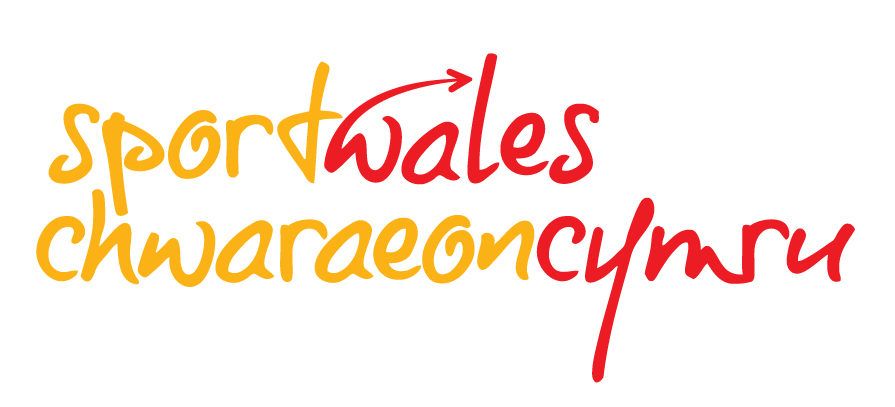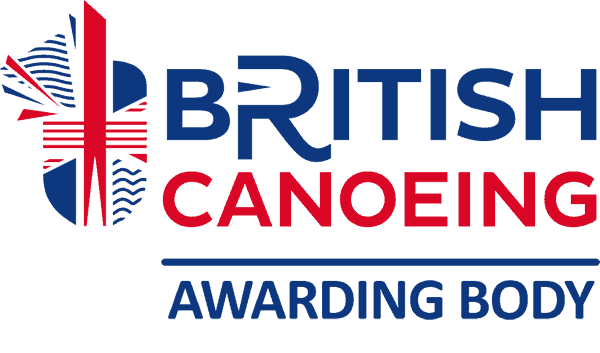REPORT A SAFEGUARDING CONCERN
SAFEGUARDING AND CHILD PROTECTION
If you want to report a concern or you need help or advice, please contact our Lead Safeguarding & Equality Officer, Kerry Skidmore:
Phone: 07908 683984 Email: childprotection@paddlecymru.org.uk
Paddle Cymru believes all children and young people have a right to participate in our sport in a safe and supportive environment - and we take our duty of care very seriously.
We work closely with Paddle UK, the other National Associations and the NSPCC's Child Protection in Sport Unit to implement policies and procedures to promote safeguarding and to investigate and act upon any incidents or concerns that are reported to us.
Jump to information on this page
How to report a concern
You should follow this procedure whether a concern or allegation has been disclosed to you by someone else, something you have witnessed or something that has been worrying you.
If you or someone else needs immediate medical attention or you or someone else is at risk of immediate harm or danger, call emergency services for the police or ambulance (999 or 112) immediately!
If the concern is about you:
- Report your concern to your Club Safeguarding Officer
OR
- Tell someone you trust
- Call (24-hour helpline) Childline 0800 1111 or NSPCC 0808 800 5000 (keep trying if you can’t get through straight away)
- Call the Paddle Cymru Safeguarding Lead on 07908 683984* or email childprotection@paddlecymru.org.uk
*(If calling out of office hours, leave a message and your call will be responded to as soon as possible the next working day.)
If you are a Club Safeguarding Officer, or if you have a concern about someone else:
Remember: It is not your responsibility to investigate a concern or allegation, or to decide whether someone is being abused. It is your responsibility to pass the information you have on to the appropriate person or organisation.
- Complete the Reporting Concerns Form with as much detail as you know
- Report the concern to the Paddle Cymru Safeguarding Lead on 07908 683984* or email childprotection@paddlecymru.org.uk
- If there is an urgent concern and the Paddle Cymru Safeguarding Lead is unavailable, refer immediately to Children’s Social Care, Adult Social Care or the Police**
- Within 24 hours, send a copy of the Reporting Concerns Form to childprotection@paddlecymru.org.uk
- Ensure confidentiality at all times and share information only with the appropriate people and on a need-to-know basis
ENSURE YOU KEEP A RECORD OF YOUR CONCERN AND HOW YOU REPORTED IT. Try to include the date, time and place, what happened, the name of anyone who may have seen what happened and who you reported it to and when. Try to note as much detail as you remember.
*If calling out of office hours, leave a message and your call will be responded to as soon as possible the next working day.
** How to make a referral if the Paddle Cymru Safeguarding Lead is unavailable to make the referral for you:
- For all referrals, it is important that you complete the Reporting Concerns Form and send this to the Paddle Cymru Safeguarding Lead because the agency you have contacted may not immediately contact Paddle Cymru.
- Children's Social Care: Do a Google search for the name of your local authority and the phrase 'concerned about a child'. This should bring up the council's website for children's social care with a phone number and email address for their office. Call the number and ask the social worker for instructions on how they would like you to make a referral (this is different in each local authority).
- Adult Social Care: As above for Children' Social Care, but search for the phrase 'concerned about an adult' instead. This should bring up the council's website for adult social care.
- Police : Call 101. You will be automatically redirected to your local police force.
Policies, Guidance and Templates
You can find all our Safeguarding policies, guidance and key templates here. Please note that many of our policies and guidance notes have been developed jointly with Paddle UK and the other National Associations to ensure consistency in safeguarding practice across the UK.
Policies
SCP-P1 Safeguarding Children & Young People Policy
SPC-P2 Safeguarding Whistle Blowing Policy
SPC-P5 Safe Storage and Handling of Sensitive Material Policy
SPC-P6 Safeguarding Adults Policy
CW-P1 Safeguarding Children and Young People Policy
Safeguarding Complaints & Disciplinary Procedures
Guidance
CWS-G2 Reporting Concerns Outside Paddlesport
CWS-G3 Reporting Concerns Within Paddlesport
CWS-G30 Guidelines for Internet and Social Media Use - for parents and athletes
CWS-G35 Position of Trust Legislative Change Guidance
G2-CWS Reporting Guide for Concerns Outside Paddlesport
G3-CWS Reporting Guide for Concerns Within Paddlesport
SPC-G4 Recording Concerns Form
SPC-G5 Coaches and Officials Code of Conduct
SPC-G6 Guidelines for use of Photographic and Filming Equipment
SPC-G7 Self Declaration Form Working with Children & Adults
SPC-G8 Guidance for Clubs and Centres - Interim Suspension Pending Investigation
SPC-G11 Physical Contact and Young People Guidelines
SPC-G12 Protecting Children and Young People with Disabilities
SPC-G13 Managing Challenging Behaviour
SPC-G14 Equivalent Child Protection Training
SPC-G15 Recruitment and Selection of Individuals Working with Young People
SPC-G16 A Guide to Training Programmes for Young People
SPC-G17 Disclosure and Barring Service - Frequently Asked Questions
SPC-G20 Communicating with under 18 year olds
SPC-G21 Safeguarding Training Requirements
SPC-G23 Portability for DBS Certificates (for those subscribed to the DBS Update Service)
SPC-G25 Social Media Guidelines for Clubs, Centres and Volunteers
SPC-G26 Disclosure and Barring Service (DBS) Guidance
SPC-G27 Interim Suspension of Individuals Pending an Investigation
SPC-G28 Changing Room Guidance
SPC-G29 DBS Guidance Flowchart
SPC-G30 Young Persons Online Agreement
SPC-G33 Club Guidance for Video Calls
Introduction Pack for Club Welfare Officers
Templates
T1 Club Safeguarding Policy Template
T4 Paddlesport Consent Form - under review
T5 Club Safeguarding Officer Role Description
T6 Event Welfare Officer Role Description
T7 Reference Form for Club Volunteer/Coach
T10 Young Paddlers Code of Conduct
Safeguarding Risk Assessment Template
Posters and flyers
Club Safeguarding Officer Poster
Young Person's Guide to Safeguarding
Let Children Know You're Listening
Keeping Kids Safe Online / Cadw Plant Yn Ddiogel Ar-Lein - NEW
Staying Safe Online for Young People / Cadw'n Ddiogel Ar-Lein - NEW
Young Volunteer Flyer - New Coming Soon
Young Volunteers Log Sheet (Print out to complete by hand) -NEW
Young Volunteers Log Sheet (Word Doc to fill out on device) - NEW
Additional Resources
Mental Health & Wellbeing Statement and Resources - for clubs with young paddlers
CPSU Advice for Parents (external link)
CPSU Online Safety Guidance (external link)
Thinkuknow.co.uk (external link) - Guidance for kids and parents on online safety
Welsh Government guidance: Responding to suicidal thoughts and self-harm
People Working with Children Outside Formal Education Factsheet - NEW
Safeguarding Training
A range of safeguarding training courses and learning opportunities are available, from basic awareness to specialist training. These courses are designed to enable staff, coaches and volunteers in various roles to increase their knowledge and skills in order to safeguard children effectively.
Incidental or no contact with children
BCAB Introduction to Safeguarding eLearning
- Duration: 30 minutes
- Cost: £20
Suitable for coaches, volunteers and staff who do not work regularly or alone with children.
This eLearning covers a basic understanding of safeguarding in paddlesport. It is designed only as an introduction and is suitable for those who have limited interaction with children and vulnerable adults.
Regular contact with children
UK Coaching Safeguarding and Protecting Children (SPC)
- Duration: 3 hours
- Cost: £42
- Pre-requisite for TTL training
Suitable for coaches, volunteers, staff and safeguarding officers who work regularly or alone with children.
This workshop will help raise your awareness of the tell-tale signs of abuse and poor practice, and give you the tools you need to deal with any issues sensitively, appropriately and effectively should the need arise.
Regular contact with children
Safeguarding and Protecting Children (SPC) Renewal
(refreshers are available as eLearning)
- Duration: 2 hours
- Cost: £25
- Pre-requisite for TTL training
- Renewal due every 3 years
Suitable if you're aged 18 or over and have already attended the Safeguarding and Protecting Children workshop.
This eLearning course is a convenient way for you to refresh, consolidate and update your understanding of safeguarding at a time to suit you.
Designated Safeguarding Officer
NSPCC Time to Listen (TTL)
(no accepted equivalent)
- Duration: 3 hours
- Cost: £42
Specifically designed for safeguarding officers who have already attended a basic training.
This workshop will help you understand the role and responsibilities of a Safeguarding Officer (aka Welfare Officer) and of statutory agencies, and what this means in practice.
Which level of training do you need?
Depending on your role and the frequency of work you do with children and young people, you will be required to complete different levels of safeguarding training. Our Training Requirements Table will help you identify which level of course you need to complete.
Already completed training through your workplace or different setting?
We will only accept Level 3 Designated Safeguarding Officer Training as an alternative to these courses.
Safeguarding Adults Training
Following publication of The Care Act 2014, there is an increasing number of Safeguarding Adult training courses available. The Ann Craft Trust is the leading authority on safeguarding disabled children and adults at risk and can provide sport-specific safeguarding training. This includes the "Safeguarding Adults at Risk – An Introduction" eLearning:
- Bilingual eLearning course in Welsh and English
- Duration: 40 mins
- Cost: £25
- Suitable for coaches, volunteers, staff and safeguarding officers who work in an environment with adults or where adults are present
- Consists of two modules designed for individuals looking to begin learning about safeguarding adult and covers how to recognise safeguarding concerns and how to respond and report appropriately when a concern is raised.
For more information - including how to pay for and access the eLearning - click here.
Course Calendar
ONLINE REPORTING CONCERNS FORM
To complete and submit an online form click on the link below, this will take you to the central Paddle UK Report a Concern page, you will also find a downloadable Word version of the form at the bottom of the page.







